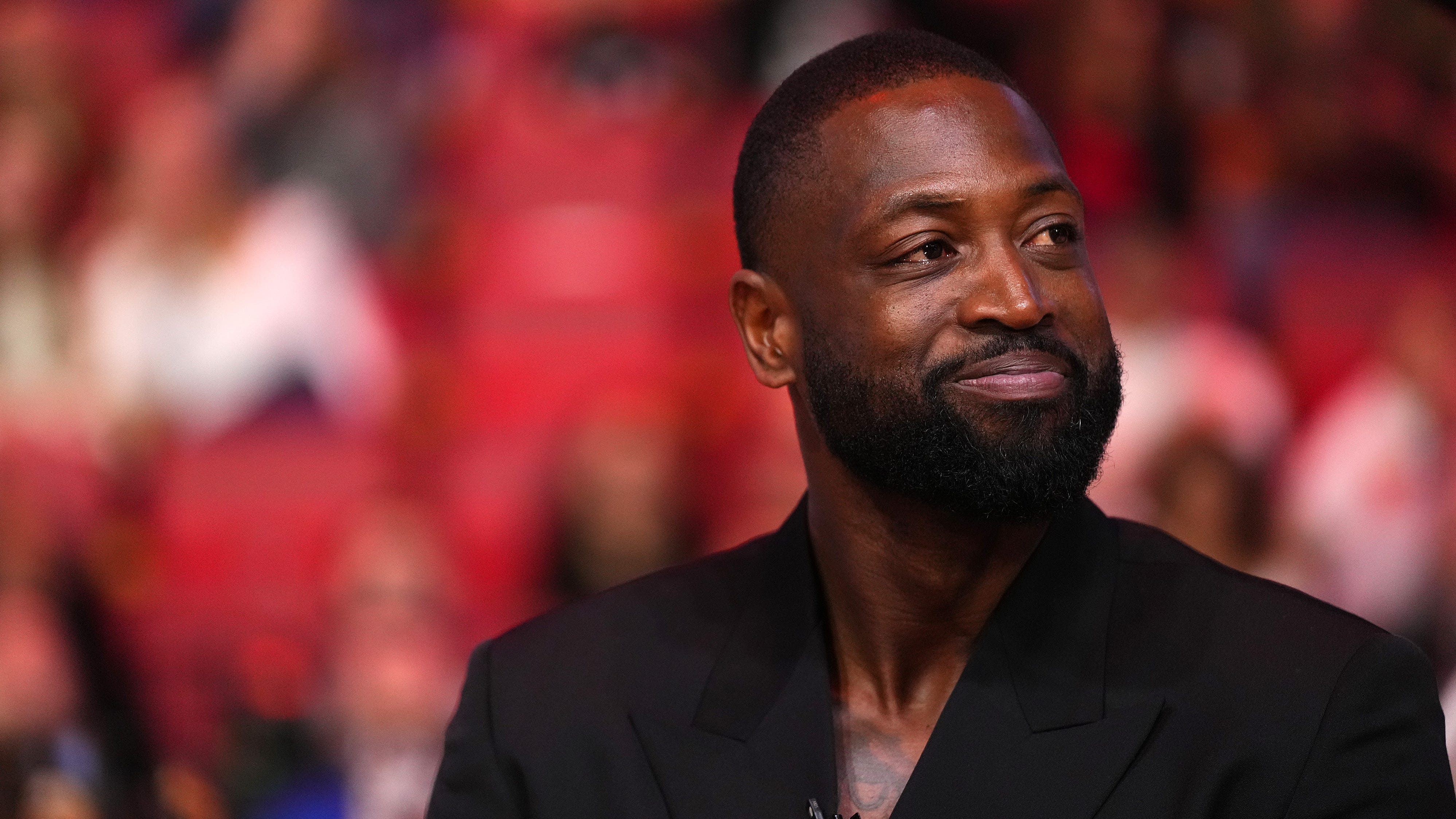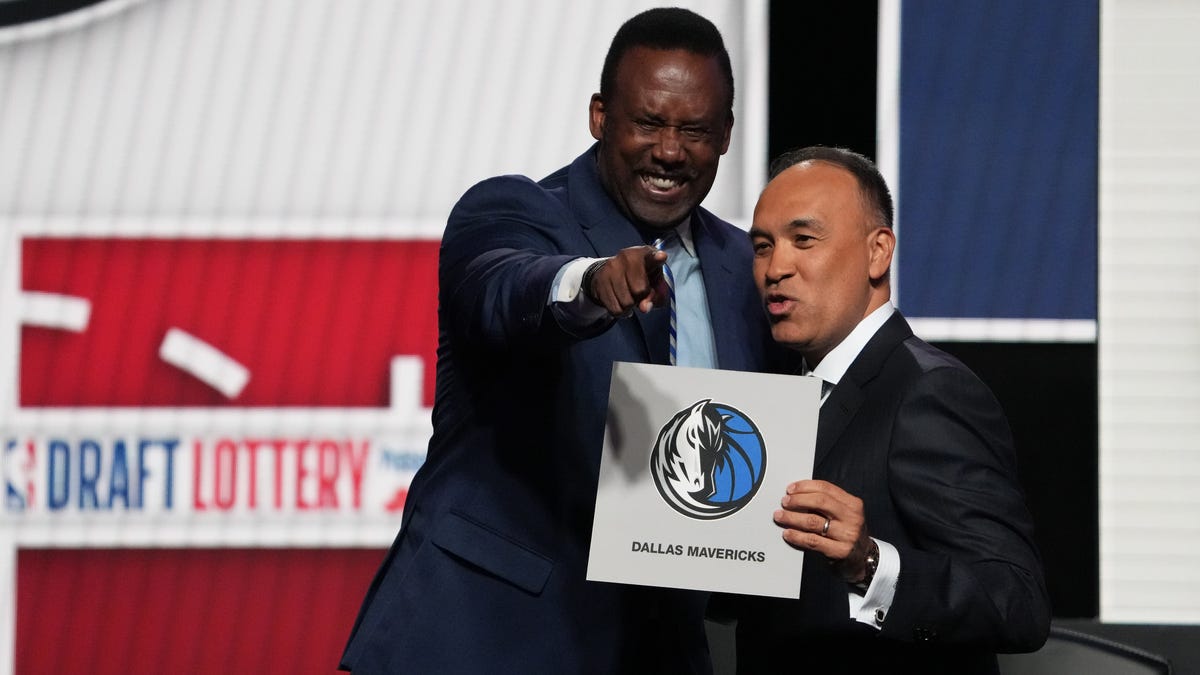The Dallas Mavericks had a 1.8% chance of landing Cooper Flagg in the NBA draft. That they did after trading Luka Doncic ended the magic for me.

Dwyane Wade shares thoughts on Dallas Mavericks getting first pick
NBA Hall of Famer Dwyane Wade shares his thoughts on the NBA and whether or not the Mavericks getting the first pick in the draft is a “coincidence.”
Sports Seriously
The Dallas Mavericks’ trade of Luka Dončić for Anthony Davis made me question the NBA’s motives.The Mavericks’ subsequent acquisition of Cooper Flagg through the NBA draft lottery, despite long odds, further fuels my suspicion.It’s hard to ignore past instances of alleged rigging, including Patrick Ewing’s draft to the New York Knicks and LeBron James’ draft to the Cleveland Cavaliers.
ABC News reporter John Stossel was assaulted in 1984 for saying what just about every American knew: “I think it’s fake.”
Stossel said it to professional wrestler David Shultz for an ABC “20/20” magazine segment on the World Wrestling Federation.
Shultz responded by saying, “You think it’s fake, you (expletive).” Then he hit Stossel hard in the head, knocking him to the floor.
Every thinking American knew then and knows now that professional wrestling is a fiction. A show.
We called it “trash sport.”
If I were interviewing NBA Commissioner Adam Silver today, I would start with Stossel’s point of view.
“I think it’s fake.”
Why did Dallas only shop Luka Doncic to LA?
I became convinced the NBA is fake on Feb. 2, the day the Dallas Mavericks traded Luka Doncic to the Los Angeles Lakers for Anthony Davis and some change.
The trade made zero sense.
Doncic is a young star coming into his prime. Davis is a fading star, injury-prone at the end of his career.
If the trade were legitimate, the Dallas Mavericks would have shopped their young star around to a dozen teams and gotten offers packed with talent and first-round draft picks.
But the Mavericks only shopped Doncic to one team — the Lakers.
The Lakers were in a slide from their former greatness. They are led by superstar Lebron James, who is also approaching the end of his career. Interest in the NBA there had grown stale.
But the Doncic trade changed all that. It electrified Los Angeles — one of the NBA’s most important markets — and demoralized basketball fans in Dallas.
Many sports analysts called it one of the worst trades in NBA history, because there was no logic to it.
I never believed the story.
Now I get it: Dallas wanted Cooper Flagg
On that day it became my obsession, an almost weekly search on the internet to see if there is anything new on the question: Why did the Mavericks trade Luka Doncic?
On May 12, I got the answer.
They traded Luka Doncic to get Cooper Flagg — the Duke University player expected to become the next transcendent star in the NBA.
I can’t prove it, and I’m not sure anyone ever will. But I finally understand why Nico Harrison, the president of basketball operations at the Dallas Mavericks, committed professional suicide by trading his team’s beloved superstar.
On May 12, in a season in which his team did something historically inexplicable — traded away their future for a song, they did something else historically inexplicable — they won the future, the NBA Lottery, against extremely long odds.
The chances of the Dallas Mavericks getting the first pick in the NBA draft, and thus Cooper Flagg, were set at 1.8%.
Sure, long odds are sometimes defied. But that these two remarkable things happened in the same year, well, the odds are infinitesimal.
Even LeBron James implies the NBA draft is rigged
It’s not a coincidence, suggested sports analyst Jim Rome, who tweeted to his 1.2-million X followers this vindication:
“The time then-commissioner David Stern came at me for having the audacity to ask him if the draft was rigged when Patrick Ewing went to the Knicks. Hilarious. #1.8PercentChance”
I felt like Rome was talking directly to me.
Not only was he telling me he agreed with me. He was telling me I am hopelessly naïve. That the NBA draft has been rigged for decades — at least since 1985 when the New York Knicks drafted Patrick Ewing.
You know who agrees with Rome?
LeBron James, who recently implied to ESPN’s Pat McAfee that his own first-round draft pick to his hometown Cleveland Cavaliers was no accident.
On May 12, James responded to the Dallas Mavericks winning the NBA Lottery with nine laugh-until-you-cry emojis.
NBA may be a business, but we don’t have to like it
The NBA is a business. It can manipulate its product any way it wants, within legal limits.
Apparently, it wants to influence where its best young players take their talent. Nothing personal, just business.
But it means some mid-market franchise is going to get screwed. It means the Hickorys of the NBA — teams like Indiana and Orlando and Atlanta — are going to miss out on red carpet moments as they perpetually play the doormat.
Perhaps it is best for the NBA, the business, that its anchor markets — Los Angeles, Dallas, New York and Boston — are well stocked with talent.
But there is a price for cheating.
I am a life-long consumer of NBA basketball. From my first game watching Bill Russell and his Boston Celtics beat my Philadelphia 76ers at The Spectrum in 1967, to Devin Booker’s 70 points at Boston Garden.
I’m done with all that.
I don’t believe in the game anymore.
And I don’t watch trash sports.
Phil Boas is an editorial columnist with The Arizona Republic. Email him at phil.boas@arizonarepublic.com.

